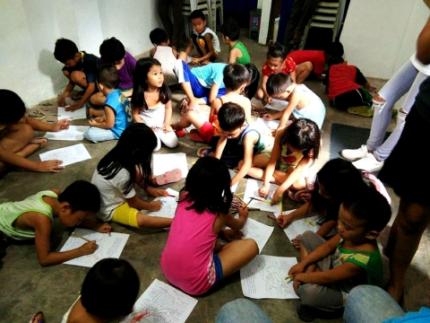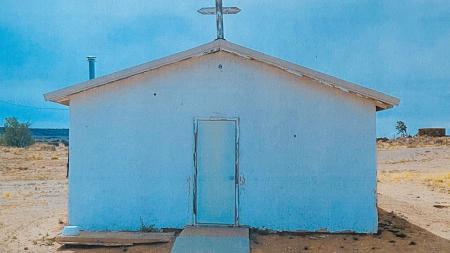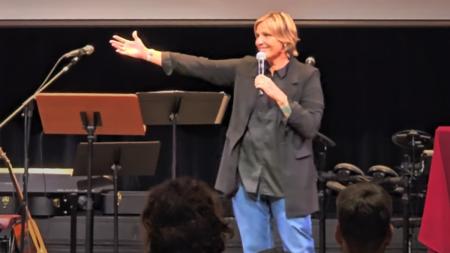Finding Community in Botocan

Children at the Botocon Church enjoyed activities led by ATS students.
Christian Reformed World Missions
Although the members of the Botocan community in Manila, Philippines, are considered among the urban poor, their sense of community and cooperation reaches beyond that of most middle class and wealthy subdivisions.
Members of a church planting class at Asian Theological Seminary taught by Christian Reformed World Mission’s Stan Kruis recently traveled to Botocan to learn about this community and ministry taking place in the urban poor setting.
The seminary is located in Quezen City, Philippines.
“Botocan, is one of hundreds of informal settlements in Manila,” says Kruis. “Living as squatters is a common way for people to live close to the resources of the capital city.”
As Kruis and his students walked through the narrow walkways of Botocan, they quickly realized just how densely-populated the area is—about 18 times more densely-populated than Tokyo, the world’s largest city—and how well residents worked together to share that common space.
“We passed boys playing basketball, houses filled with friends and families talking together, and a group of men working to lay water pipe,” recalls Kruis.
Each member of his class stayed with separate families from Botocan’s church, so they shared meals and developed deeper relationships within this setting.
As for Kruis, he stayed in a small two-story home with a mother and her son, Ella and Raymond.
“I can’t say that I slept well our two nights in Botocan, but Ella’s delicious meals more than compensated for that. She and Raymond were excellent hosts.”
Back at the church, Kruis’s students led and participated in a variety of activities including Ultimate Frisbee, a nail-painting event for teenage girls, a Bible story, and other games. On Sunday, his students led worship for the adult service and Bible lessons for Sunday school students.
As the seminary students debriefed about their experience in Botocan, they discussed the ways the church in Botocan was making good use of the community’s great sense of cooperation as a means to share the gospel.
“Our thoughts turned to charity and justice,” said Kruis, “Giving generously and overcoming the economic oppression that results in huge disparities between rich and poor.”
While the long-term effects of this experience are difficult to gauge, Kruis already recognizes an increased sense of compassion for people living in squatter communities.
“Just a few days after our trip, the class heard news of a major fire that damaged over 1,000 homes in another squatter area,” says Kruis.
“Our experience in Botocan helped us understand and empathize with those who were involved.”
Field trips like this one to Botocan help students at Asia Theological Seminary gain a better understanding of God’s Kingdom and the variety of ways that they can serve in it.


